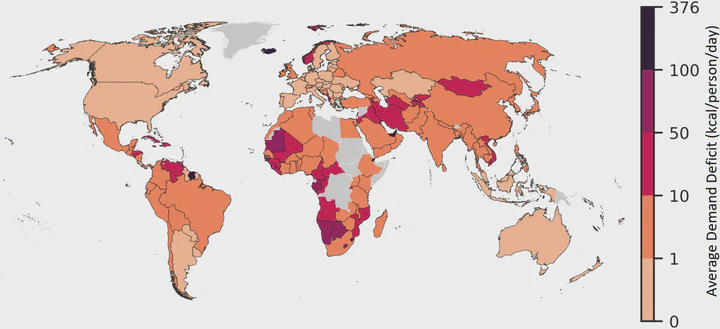Insights into countries’ exposure and vulnerability to food trade shocks from network-based simulations

Abstract
In the context of a global food system, the dynamics associated to international food trade have become key determinants of food security. In this paper, we resort to a diffusion model to simulate how shocks to domestic food production propagate through the international food trade network and study the relationship between trade openness and vulnerability. The results of our simulations suggest that low-income and food insecure countries tend to be the more exposed to external shocks and, at the same time, they are usually not in a position to take full advantage of international food trade when it comes to shield themselves from shocks to domestic production. We also study and discuss how nodes characteristics are associated with the propagation dynamics and with countries’ vulnerability, finding that simple centrality measures can significantly predict the magnitude of the shock experienced by individual countries.
Related
- (Unintended) Consequences of export restrictions on medical goods during the Covid-19 pandemic
- wsGAT: Weighted and Signed Graph Attention Networks for Link Prediction
- mGNN: Generalizing the Graph Neural Networks to the Multilayer Case
- Machine learning dismantling and early-warning signals of disintegration in complex systems
- Group Cohesion Assessment in Networks